Harnessing Email Marketing Services for Maximum Impact. Discover how strategic email campaigns drive customer engagement, boost conversions, and foster lasting brand connections. Elevate your business outreach with data-driven insights and personalized content to achieve remarkable results in today's competitive landscape.
Our Email marketing services
We offers different types of email marketing services tailored to different business needs

Newsletter Campaigns
Regular updates, news, and content delivered to subscribers' inboxes to keep them engaged.

Promotional Campaigns
Special offers, discounts, or product announcements aimed at driving sales and conversions.

Drip Campaigns
Automated series of emails sent over time to nurture leads and guide them through the sales funnel.

Transactional Emails
Order confirmations, shipping notifications, and other transaction-related emails that provide essential information to customers.

Personalized Campaigns
Utilize customer data to send targeted and relevant content, enhancing customer relationships.
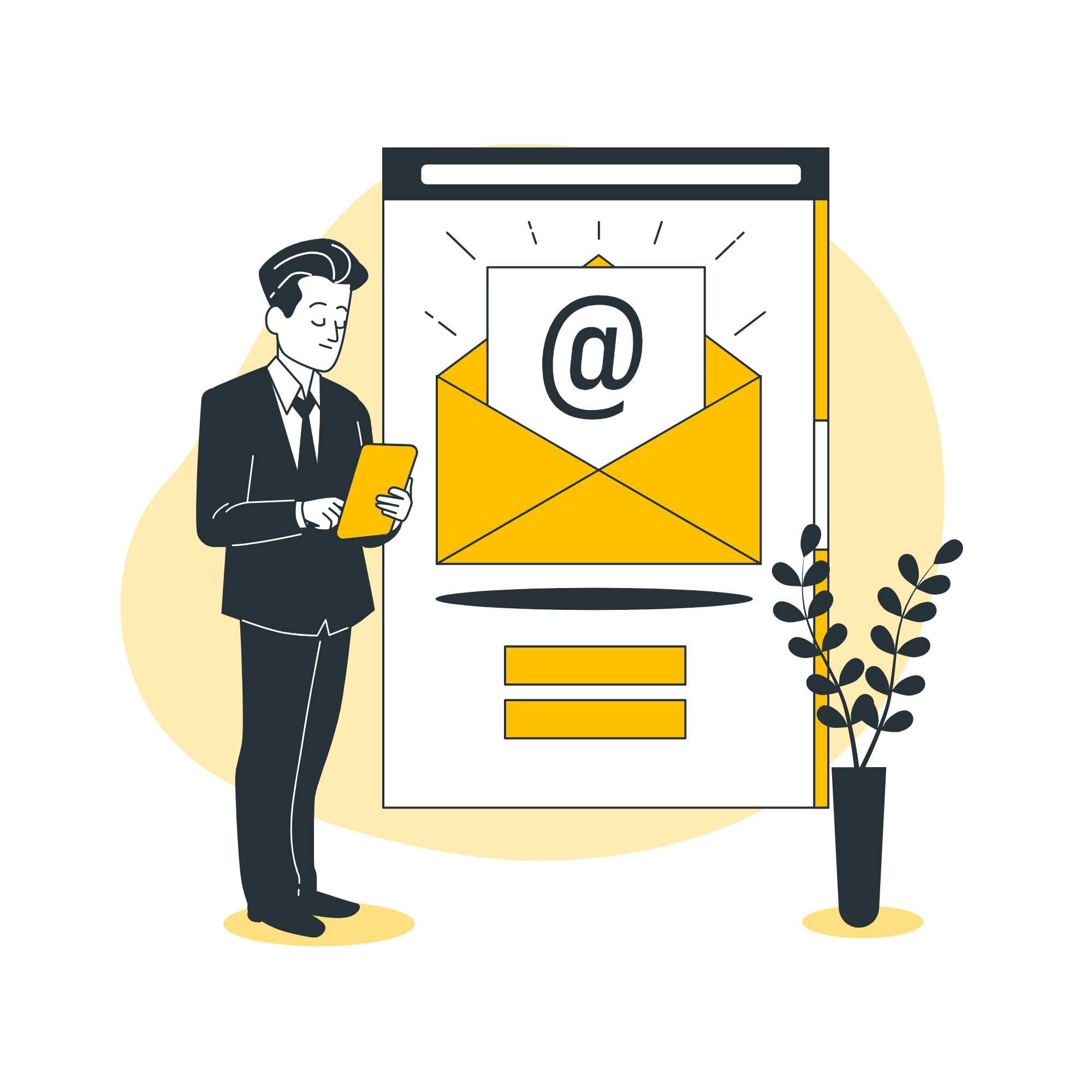
Segmented Campaigns
Divide your email list into segments based on specific criteria, sending tailored content to each group.

Abandoned Cart Emails
Remind customers about items left in their cart, encouraging them to complete their purchase.
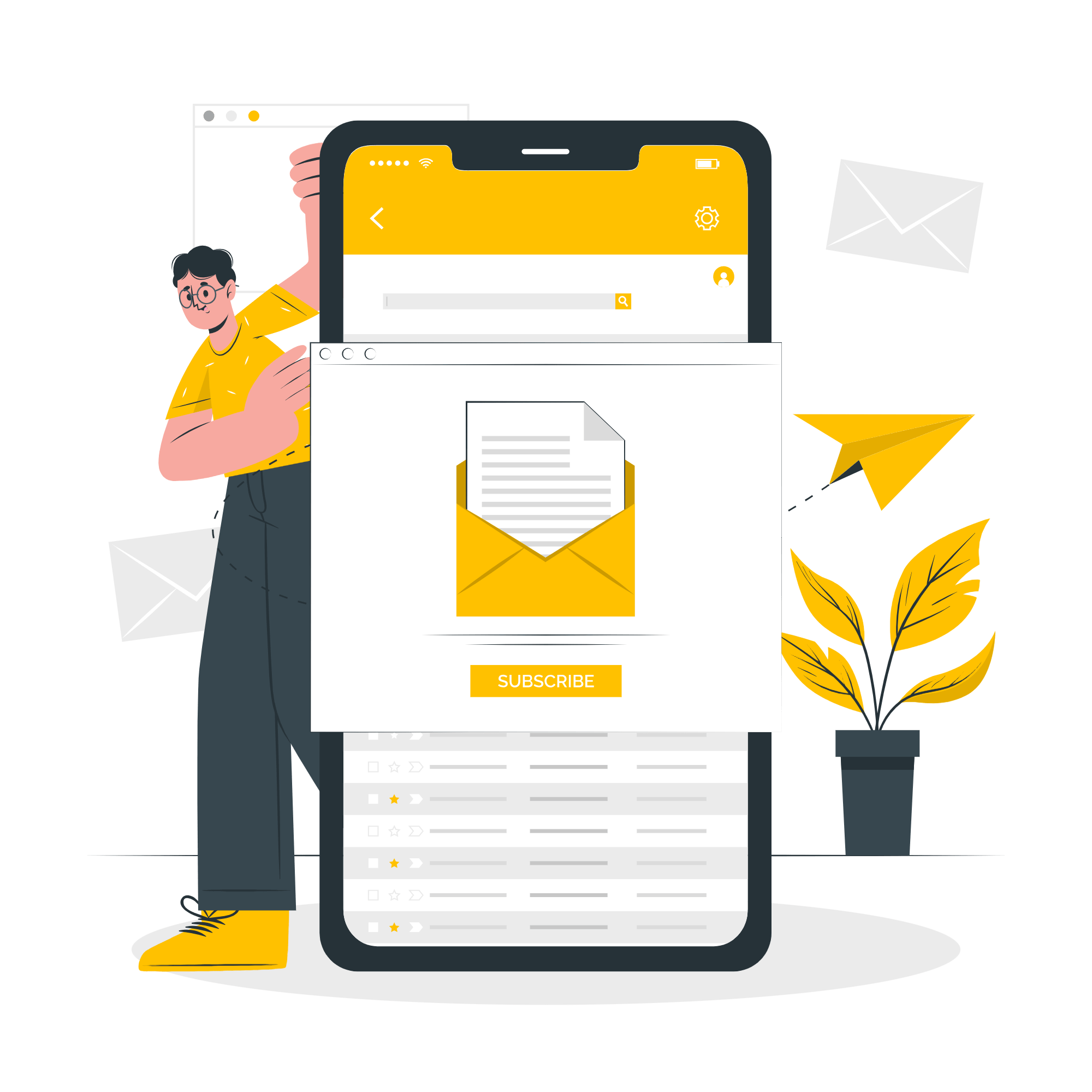
Re-engagement Campaigns
Target inactive subscribers with compelling content to revive their interest and engagement.

Survey and Feedback Emails
Collect customer opinions and insights to improve products and services.

Event and Webinar Emails
Promote upcoming events, webinars, or conferences to a targeted audience.

Welcome Series
Send a sequence of emails to new subscribers, introducing your brand and guiding them through your offerings.

Announcement Emails
Share company news, updates, or milestones to keep subscribers informed.

Lets Drive Sales
Lets talk to increase your Revenue Traffic.
How Email marketing Helps Business?
Email marketing offers numerous benefits to businesses
- Direct Communication
- Cost-Effective
- Targeted Reach
- Personalization
- Automation
- Increased Conversions
- Customer Engagement
- Measurable Results & Brand Awareness
- Global Reach & Retargeting Opportunities

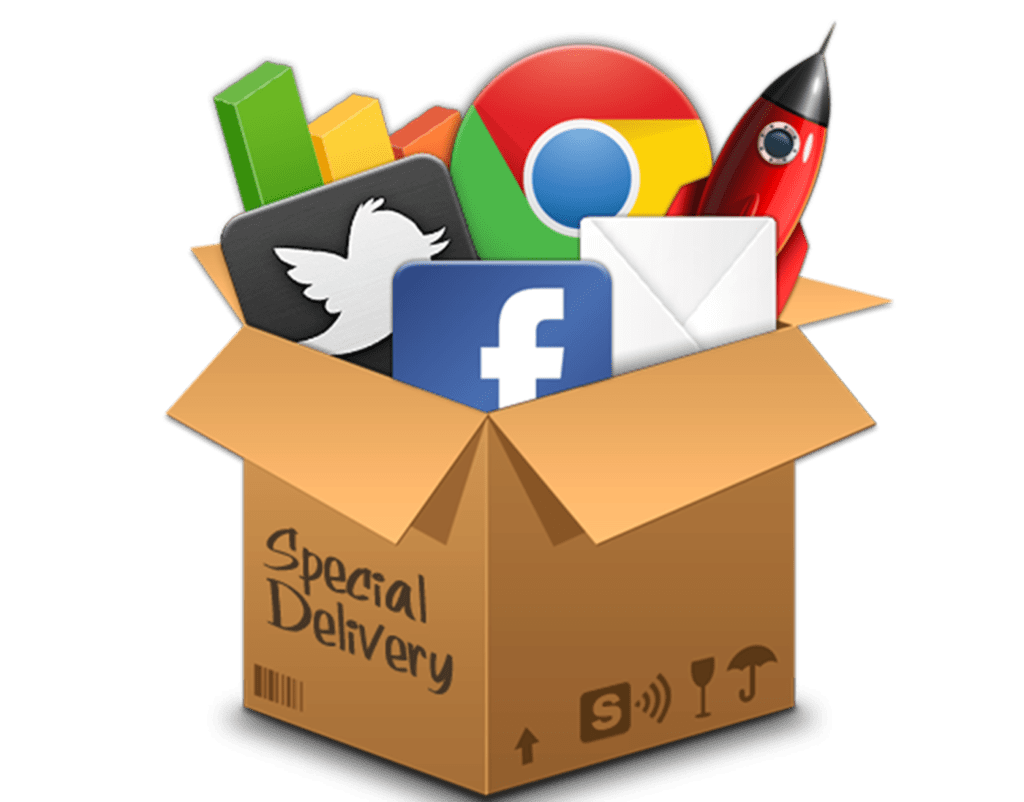
Get Started Today
Get Prices Like Nothing Else
Building a strong brand online, you can differentiate yourself from the competition, build trust and credibility with your audience, and create a loyal customer base that supports your business over the long term.
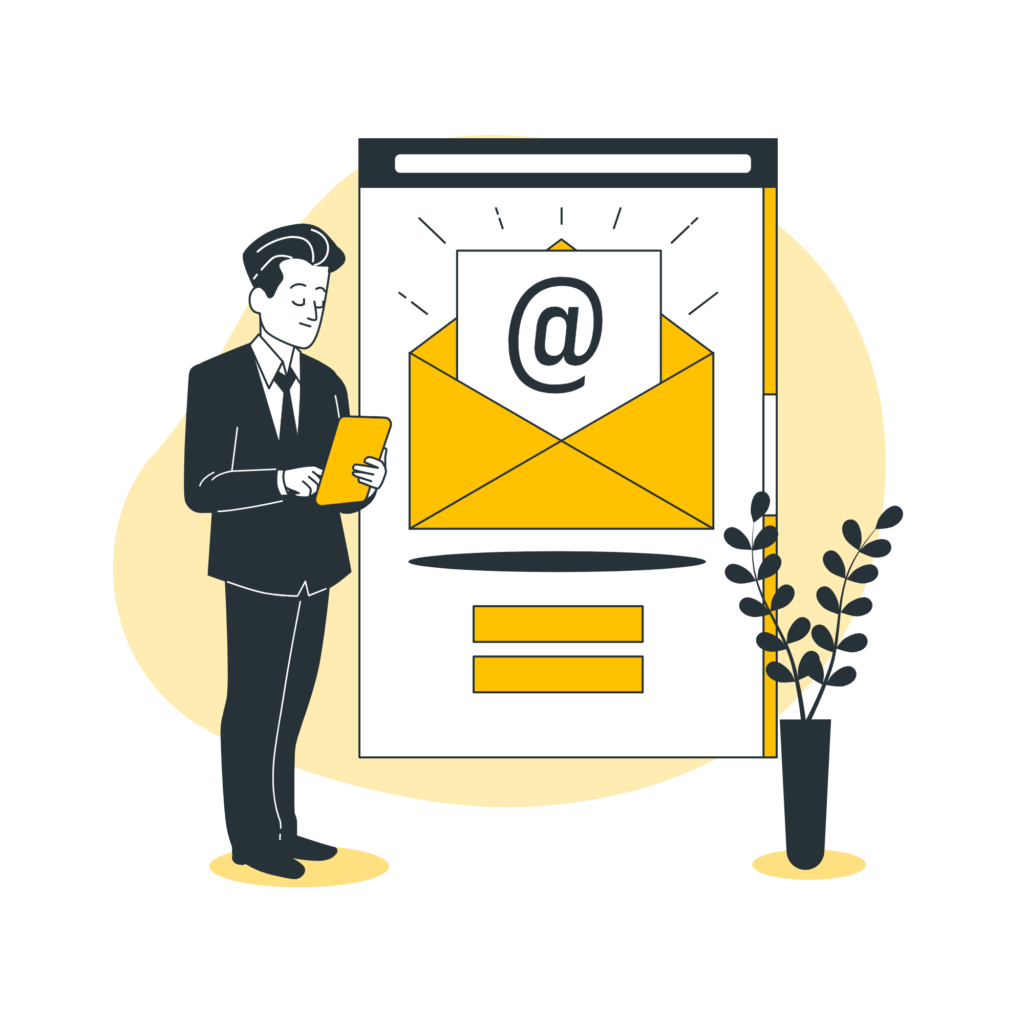
Reasons why a business might choose buimb digitals Email Marketing Service
We offer automation tools, enabling businesses to set up automated workflows like welcome series, drip campaigns, and abandoned cart reminders to nurture leads and customers.
Buimb Digital's platform is user-friendly, making it accessible for both beginners and experienced marketers to create and manage email campaigns efficiently.


Personalization is crucial in email marketing. Buimb Digital's service could offer personalization features, allowing businesses to insert dynamic content based on user data and behaviors.
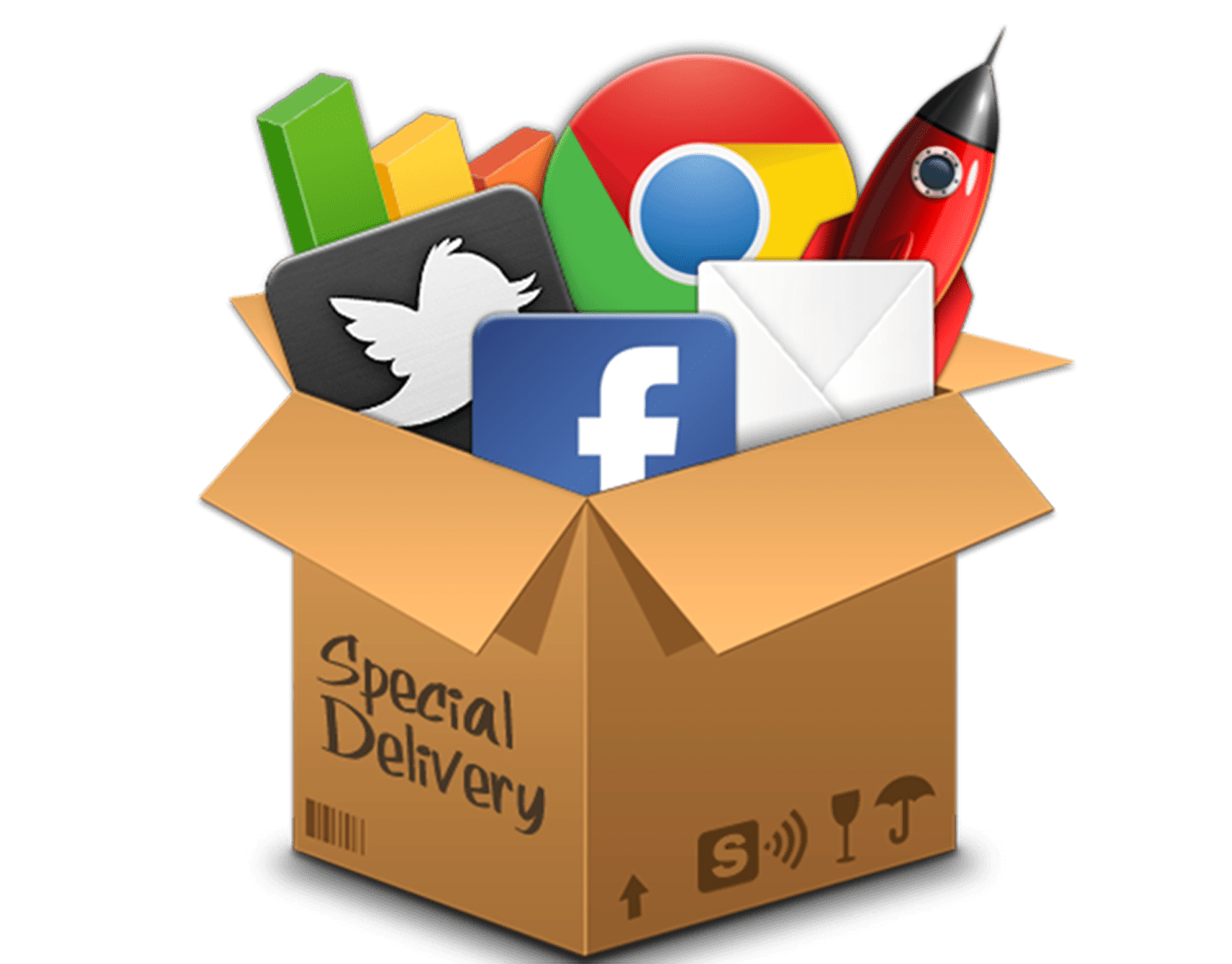
Bring growth to business
Lets talk to increase your sales.
Need Help?
FAQs
what is email marketing?
Email marketing is a digital marketing strategy that involves sending targeted emails to a group of recipients with the goal of promoting products, services, building relationships, or delivering valuable content. It’s a direct form of communication that leverages the email platform to reach potential and existing customers. Here’s a breakdown of key aspects:
Audience Segmentation: Businesses segment their email lists based on factors like demographics, interests, past interactions, or purchase history. This segmentation ensures that recipients receive content relevant to their preferences and needs.
Content Creation: Marketers create engaging and personalized content for their email campaigns. This can include promotional offers, newsletters, educational content, event announcements, product updates, and more.
Personalization: Email marketing often involves personalizing messages based on recipient data. This can include addressing recipients by their names, recommending products based on their past purchases, and tailoring content to their preferences.
Automation: Automation allows marketers to set up workflows that trigger emails based on specific actions or time intervals. For example, a welcome email series for new subscribers or abandoned cart reminders for online shoppers.
Design and Templates: Email campaigns are designed using templates that ensure a consistent look and feel across various devices. Design elements, such as images, fonts, colors, and layout, play a crucial role in conveying the brand’s identity.
Call to Action (CTA): Emails typically include a clear and compelling call to action, encouraging recipients to take a specific action like making a purchase, visiting a website, downloading a resource, or signing up for an event.
Analytics and Tracking: Email marketing platforms provide analytics to track metrics such as open rates, click-through rates, conversion rates, and engagement levels. These insights help marketers understand the effectiveness of their campaigns.
Deliverability: Ensuring that emails reach recipients’ inboxes and not their spam folders is a critical aspect of email marketing. This involves maintaining good sender reputation, adhering to best practices, and complying with anti-spam regulations.
A/B Testing: Marketers often perform A/B testing by sending different versions of an email to a subset of their audience to determine which version performs better in terms of open rates, click-through rates, and conversions.
Optimization: Based on the insights gathered from analytics and testing, marketers refine their email campaigns over time to improve their effectiveness. This includes tweaking subject lines, content, design, and other elements.
Email marketing is a versatile tool used by businesses of all sizes and industries to connect with their target audience, nurture leads, retain customers, and drive conversions. When executed strategically and with a focus on delivering value to recipients, email marketing can be a powerful means of building relationships and achieving marketing goals.
How Email marketing Helps Business?
Email marketing offers numerous benefits to businesses:
Direct Communication: It provides a direct channel to communicate with your audience, delivering your message straight to their inbox.
Cost-Effective: Email marketing is more cost-effective than many other marketing channels. There are no printing or postage costs, making it a budget-friendly option.
Targeted Reach: You can segment your email list based on various criteria, ensuring that your messages reach the right audience with relevant content.
Personalization: Email allows you to personalize messages based on user preferences, behavior, and demographics, leading to higher engagement rates.
Automation: With automation, you can set up drip campaigns, welcome series, and more, saving time while nurturing leads and guiding them through the sales funnel.
Increased Conversions: Well-crafted email campaigns can lead to higher conversion rates by delivering tailored content to a receptive audience.
Customer Engagement: Regular communication through email keeps your brand in front of customers, enhancing brand loyalty and engagement.
Measurable Results: Email marketing platforms offer detailed analytics, allowing you to track open rates, click-through rates, conversions, and more.
Drive Traffic: Include links to your website or specific landing pages to drive traffic and increase the chances of conversions.
Retargeting Opportunities: You can retarget customers who have shown interest but didn’t complete a desired action, like making a purchase.
Brand Awareness: Consistent email communication reinforces your brand identity and keeps your products or services top-of-mind.
Mobile Accessibility: A significant portion of email opens occurs on mobile devices, allowing you to reach users on the go.
Integration with Other Channels: Email can complement other marketing channels, such as social media and content marketing, creating a holistic approach.
Feedback and Surveys: Email can be used to gather feedback, conduct surveys, and understand customer preferences, aiding in product development and improvement.
Time-Sensitive Communication: For promotions, limited-time offers, or event announcements, email enables quick and time-sensitive communication.
Global Reach: Email marketing enables businesses to reach a global audience instantly, overcoming geographical barriers.
When executed effectively, email marketing can be a powerful tool for building and maintaining customer relationships, driving sales, and achieving business growth.
what is email marketing service?
An email marketing service is a specialized platform or software that facilitates the creation, management, and execution of email marketing campaigns. These services offer a range of tools and features designed to streamline the process of sending targeted and engaging emails to a business’s subscribers or customers. Here’s an overview of what an email marketing service entails:
Email Campaign Creation: Email marketing services provide intuitive interfaces for designing emails. Users can choose from a variety of templates, customize layouts, add images, and design compelling content.
Contact Management: These services allow users to manage their email lists by importing, segmenting, and organizing contacts. Segmentation helps tailor emails to specific groups, increasing relevancy and engagement.
Personalization: Many services enable dynamic content insertion, allowing marketers to personalize emails based on recipient data like names, purchase history, and preferences.
Automation: Automation features include setting up drip campaigns, autoresponders, and triggered emails based on user actions (e.g., signing up, making a purchase, abandoning a cart). This ensures timely and relevant communication.
A/B Testing: Email marketing platforms often support A/B testing, enabling users to experiment with different subject lines, content, designs, or send times to determine which version performs better.
Analytics and Reporting: Robust tracking tools provide insights into email performance metrics like open rates, click-through rates, conversions, and unsubscribes. These insights guide optimization efforts.
Compliance: Many services help users adhere to email marketing regulations by including features like opt-in and opt-out mechanisms, ensuring compliance with anti-spam laws.
Deliverability: Email deliverability is crucial for successful campaigns. Email marketing services often maintain relationships with internet service providers (ISPs) to enhance the chances of emails landing in recipients’ inboxes.
Integration: These platforms often integrate with other marketing tools, CRM systems, e-commerce platforms, and analytics tools, allowing for a cohesive marketing ecosystem.
Templates and Design Tools: Ready-to-use templates and design tools simplify the creation of visually appealing and responsive emails.
Scalability: Email marketing services cater to businesses of all sizes, offering plans that accommodate various subscriber counts and business needs.
Customer Support: Reliable services offer customer support through various channels to assist users with technical issues, campaign strategies, and best practices.



